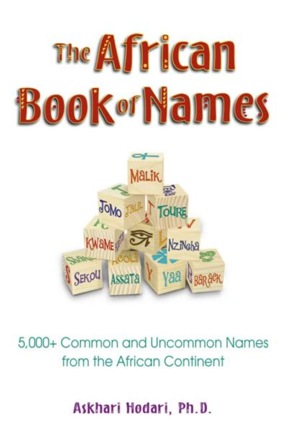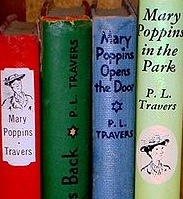
Sorry I missed posting yesterday, everyone — I have a whale of a head cold. If there’s one principle I have tried to cling to like the proverbial leech, it’s stay offline when you have a fever. (I’m positive that we all know people we wish had clung to that appealing little axiom.)
Last time, I suggested that if your novel is thick with named characters, it might be a good idea to make a list of who appears when, so you can see where to cull and who may be combined with whom. And cries of “Madness! Madness!” filled the land.
Now, now — it’s actually a very practical suggestion. Think of it as trying to cast a production of Spartacus with a very small troupe of actors: you probably won’t be able to foist many more duties upon the leads, but the bit players could certainly play multiple roles, right?
Knowing who the players are and in what scenes they appear can also alert you to patterns in where characters tend to pile up in your work in general. If you’re the kind of writer who, for instance, leans toward naming everyone at any given party, you will want to be aware of that predilection before you write your next party scene, won’t you?
Won’t you? (Lie to me, if not. I’m still feeling under the weather.)
If, on the other hand, you tend to emphasize your protagonist’s loneliness by having other characters engage in banter around him, seeing that pattern manifest on a list may lead you to question whether it needs to happen quite so often in the book to make your point — or with quite so many different people. Or cause you to question whether a reader might conclude that your protagonist is either an unemployed mime or not an actor in his own story.
It can, in short, alert you to both point overkill and the dreaded Passive Protagonist Syndrome. (Of which more follows in the weeks to come, rest assured.)
But I’m getting ahead of myself, amn’t I? So far, in discussing how to keep your characters from blurring together in the minds of swiftly-scanning agents and editors, I’ve concentrated on the scene and paragraph levels. Today, I would like to raise the discussion to the book level.
Let’s assume for the moment that you’ve refined your opening scene (and chapter) so that characters are introduced in discrete, memorable groupings, as I have advised in the my last post. Let’s also say for the sake of argument that you’ve minimized the possibility of name confusion by christening your characters as differently as possible — no Selma and Thelma for you. All that being done, you may now sleep soundly at night, secure in the knowledge that each of your characters is distinctly memorable, right?
Not necessarily. You might still have too many named characters in the book.
Why might this be problematic? Well, if you have a cast of thousands, it’s going to be much, much harder for any reader – let alone a professional one like our friend Millicent, the agency screener – to care about individual characters. When attention is spread thin, affection starts to waver. Still worse, when a reader has to keep track of 77 different names, it can become a trifle difficult for him to tell which characters he’s supposed to be following.
And to reiterate from last time: no, as far as I am aware, there is no strict standard for how many is too many. What works best varies from book to book.
The only widely-used criterion I know is whether the reader starts to have trouble telling them apart — but, as I pointed out last time, characters whose names sound similar or begin with the same letter are prime candidates for blurrage. (Yes, I know – it isn’t a word. But it should be.) So, on a practical level, if your novel features more than 26 named characters, you MIGHT be risking their merging.
No, but seriously, since most writers do not keep running tallies of the characters in their books, it’s not all that hard to end up with 50 or 100 named characters without realizing it. Especially if they are introduced many at a time, without much character development for any given one, it isn’t precisely reasonable to expect the reader to keep track of them all, is it?
A great test of whether your novel is overstaffed is to hand a hard copy of it to a reader who does not know you very well (and thus has no incentive to lie to keep you happy), and ask him to stop reading when the number of characters becomes bewildering. Have him mark where he threw in the towel by folding that page in half.
Ideally, you will get the manuscript back with every page pristine, naturally, but if that folded page falls within your first fifty pages — i.e., in the part of the book that an agent would be likely to ask to see first — you should consider making some major cast cuts. (If the folded page falls within the first chapter, I would suggest going back and reading my last few posts, because in all likelihood, there are too many characters up front.)
You can do a version of this test on your own, by sitting down with your manuscript and a highlighting pen and marking every proper name, but if you are worried enough by the feedback you’ve been getting, you might want to go for broke and make an actual list of characters.
Yes, I know PRECISELY how time-consuming this would be; thanks for asking.
Lest you think I don’t practice what I preach, let me say up front: I do this quite a bit for my clients. When I’m editing a novel that seems to have quite a few characters wandering around, I routinely keeping track of how often and where a particular character appears. By name, so I can tell when a character who appeared once on page 15 carrying a load of firewood turns up again on page 310 entering the diner.
So far, the all-time record amongst my clients is 284 individual characters in a 400-page manuscript, but let me tell you, that tally has faced some stiff competition over the years. I tend to work with writers who envision rather fully-staffed worlds.
The easiest way to generate such a list is by using the FIND function in your word processing program and noting each page number. I like to keep the results in a spreadsheet, so I can sort it by character name, chapter, page number, and what the character is doing at the time.
Yes, that US an insanely meticulous thing to do, but then, I’m an editor by trade: my clients pay me good money to read their work with a magnifying glass. So there.
Why keep track of the extra data? To make it clearer which groups of minor characters could be consolidated into just one or two. If, for instance, my spreadsheet tells me that five different characters shoe horses throughout the book, and if the story does not involve a trip on horseback of several thousand miles between smithies, I would be tempted to make all five the same character.
Noting where each character appears — in addition to making it SUBSTANTIALLY simpler to go back and find those four extraneous blacksmiths and put them to death, literarily speaking — also makes it apparent which named characters appear in only a single scene. In my experience, character-heavy books tend to feature a LOT of one-off cameos; generating a list will help you go through all of the one-timers to check who is actually necessary to keep.
And if the idea of doing away with these folks makes you sad, remember: if you become a career novelist, this is not the only book you will ever write. Characters are notoriously recyclable. You may well find that Blacksmith Bob of today can be very happily recast as Soda Jerk Bob tomorrow.
I sense some of you shifting uncomfortably in your chairs out there. “But Anne,” some of you protest, glancing at your watches, “I realize that what you’re suggesting is something I could be doing while I am sitting down and reading my manuscript IN HARD COPY, IN ITS ENTIRETY, and OUT LOUD before I even consider submitting it, and in an ideal world, I would follow your advice to the letter. But frankly, I can barely find time to write, query, and/or submit as it is. You wouldn’t happen to know any short cuts for ferreting out extraneous characters, would you?”
As a matter of fact, I do, but I’m hesitant to roll ‘em out. I can’t even begin to tote up how many writers, aspiring and established both, I’ve heard wail, “Oh, if only I’d caught that simple, easily-corrected error before I sent out my manuscript! Now that terrific agent/dreamy editor/stern contest judge will think I’m a bonehead!” But hey, my head cold has apparently made me a softer touch than usual: if you will all PROMISE not to use the tricks as a substitute for reading your IN HARD COPY, IN ITS ENTIRETY, and OUT LOUD before sealing that submission envelope, I’ll go ahead and talk about them now.
The best technique is one that comes more or less automatically to professional readers at about the 10,000th scene mark: becoming aware what kinds of scenes tend to invite minor character lurkage en masse.
1. Any scene featuring a congregation.
If hell is other people, as Sartre suggests, then wedding and funeral scenes in novels almost invariably reek of brimstone. These events are NOTORIOUS amongst professional readers for introducing entire churchfuls of extraneous characters.
Even when all of the masses are not named individually (although you’d be astonished how often 10 or 20 are), it doesn’t take many lines of physical description or multi-party banter to convey the impression that a small, intimate wedding has a guest list to rival that of Prince Charles and Lady Diana’s nuptials.
Allow me to suggest: if behinds are in pews, it might be a good place to start trimming.
2. Any scene that takes place where strangers tend to gather.
Ditto with coffee shops, bars, class reunions, Ellis Island, airplanes/-ports, and party scenes in general. All of these venues seem to attract single-appearance characters as surely as a red carpet attracts celebrity gawkers.
Was that massive sucking noise I just heard a collective gasp of indignation? “But Anne,” the cast of thousands-mongers cry, “you’re asking me to disembowel the collective identity of modern urban life! How can I describe the complexity of the human environment without enumerating the individuals who are part of it?”
Describe away — and if you’re into enumerating, I’m not going to stop you, although your agent and/or editor may well. All I’m suggesting here is that you not insist on introducing each of the bystanders to the hapless reader as if she were the mother of the bride in a receiving line.
Not only does it tend to get a mite tedious and slow the pace of the narrative to the proverbial crawl, to a professional reader, a group scene where everyone is named down to the last poodle and great-grandfather reads as though it were simply an account of something that actually happened to the author. When the guest lists are long and specific, the jaded reader will think, “Great — when do we get back to the fiction?”
Or the memoir, or the historical account, as the case may be. Which brings me to:
3. Any group scene depicting an actual event — or based upon one.
Of course, this is not always a fair conclusion, but there is some basis for it: when writers lift scenes from real life into their novels, they do tend to include direct one-to-one correlations between the actual people and the fictional ones.
The names may change, but if Aunt Bessie, Aunt Cassie, and odd Cousin George appear in the text so fleetingly that they don’t make an impression upon the reader, that’s a pretty good tip-off to someone who reads a lot of manuscripts that the author is blessed with two aunts and a cousin who might reasonably be expected to buy the book when it is published.
And while this practice tends to delight the kith and kin mentioned (and create grudges in those not mentioned — another good reason to eschew the temptation), it’s not harmless. Both professional and casual readers alike are likely to find it problematic.
Why? Well, such references, in code or not, can be very amusing for readers familiar with the fine folks mentioned in the book, as well as their kith and kin, but generally speaking, unless a minor character plays an actual role in the plot — as in contributing some action or information that moves the story along — he will not be memorable to readers who do not already know the correlates in question.
You indignant gaspers are getting restive again, aren’t you? “Yes, yes,” you mutter impatiently, and who could blame you? “It’s not the most efficient means of storytelling; I already know that. But I fully intend to rectify that by making Aunt Bessie the gas station attendant in Chapter 47, Aunt Cassie the librarian in Chapter 12, and Cousin George the second corpse who rises from the dead on the honeymoon. Happy now?”
Not necessarily, no — and not just because my nose is so stuffed that I now find it hard to believe that air has ever passed through it.
Even if the characters in a crowd scene do appear elsewhere in the book, it can still be pretty tedious for the reader if the narrative engages in a full roll-call. Or even a partial one. Come closer, and I shall divulge a cherished secret of the trade to you: lists tend not to make for very interesting reading.
And yes, you do have my permission to attribute that line to me the next time your boss insists that you sit through yet another PowerPoint presentation.
Mentioning characters just to mention them is seldom very interesting to the reader, at least when the characters in question are not integral to the action of a crowd scene. Bystanders are not, by and large, memorable to the average reader, but as I mentioned last time, all too frequently, it’s not clear which of the cast of thousands in a scene is the one (or dozen) that the reader is supposed to remember.
If, indeed, it’s important to the plot to remember any individuals among them at all. Even in a memoir, it often isn’t, from a pure storytelling perspective.
I know, I know: you’re not going to be able to convince anyone who participated in the real-life events that s/he was not integral to the action. But just as not every detail within a physical space is either necessary to mention in order for a reader to be able to picture a place or interesting if you do, not every character in a real-world situation belongs in the written account of it.
And writers, as any editor can tell you, tend to forget that — not just that everyone who appears in our mental image of a crowd scene (or in our recollections or photographs of it, if we’re writing memoir) is going to be integral to the action, in storytelling terms, but that every new character name is something else for the reader to remember. That saps energy that would be better utilized getting involved in the story itself.
Or, to put it another way, every time a reader, professional or otherwise, mutters, “Wait — who’s Gerald?” s/he has been pulled out of the story. A top-flight storyteller — which all of us want to be, right? — tries to eliminate such jarring moments entirely from her readers’ experience.
One way to minimize such exclamations is to bear in mind that just-mentioned-in-passing characters are rarely memorable from a reader’s perspective. Every editor in the biz has at one time or another been confronted by an author angrily waving a manuscript in her face and shouting, “What do you mean, where did this character come from? Alice was a guest at Ben’s wedding in Chapter Two, for heaven’s sake!”
Invariably, the irate author is factually correct on points like these: the character will indeed have been mentioned by name in passing, as in:
The bridesmaids, Greta, Elaine, and Alice, were dressed in an eye-searing chartreuse that left Ben wondering just what these old friends had done to his bride back in junior high school to make her hate them so much.
200 pages later, out of those three never-again-mentioned bridesmaids, the author expects the reader to remember Alice. At the risk of seeming impertinent, why should he?
Unless he happens to be blessed with an unusually retentive memory, he won’t — and even Millicents who do have such memories tend to resent being expected to use them to keep 157 characters straight. At the submission stage, then, unless a character is central enough to what’s going on in a scene to warrant development, you might want to consider whisking her out of Millicent’s sight, at least for the time being.
“For the time being?” I hear some ambitious character-generators out there piping hopefully. “Does that mean I can bring Aunt Cassie back elsewhere?”
Sure — just because you take a few (or a few hundred) characters out of your submission draft of a novel doesn’t mean that you can’t reinsert them later in the publication process. There is no law that says that an author can’t offer a stripped-down, swiftly-moving version of her novel to agents and editors — and then, after the ink is dry on the relevant contracts, say to your editor, “You know, I’ve always thought that there should be more bridesmaids in Chapter 2. Like, say, 47. How would you feel about Alice’s being one of them?”
Remember, no manuscript is set in stone until it’s actually in print between covers; expect to be asked for revisions. Especially these days, when it’s not at all uncommon at the large U.S. publishing houses for the editor who acquires a book not still to be on the job — or at any rate, in the same job — by the time that book comes up in the print queue. I don’t want to horrify anyone, but within the last couple of months, I’ve talked to authors who are on their fourth and fifth editors.
Think each of those editors has shared exactly the same vision of the book, or wants the same changes?
My point is, now more than ever, it behooves writers to keep their options open. The better-organized you are, the happier you will be at last-minute revision time. Go ahead and keep copies of EVERY major revision of your manuscript, so you can revisit the Alice issue again down the road. Hang on to that character list, too; someday, possibly between revisions 6 and 7 after you’ve signed with the agent of your dreams, it may come in awfully handy.
Now that I’ve frightened all of you into hysterics, I’m off to drink some hot tea, if there’s still any left in North America after my copious indulgence of the last couple of days. More name-related tips follow anon.
Keep up the good work!






 is not the same thing as this
is not the same thing as this 
















